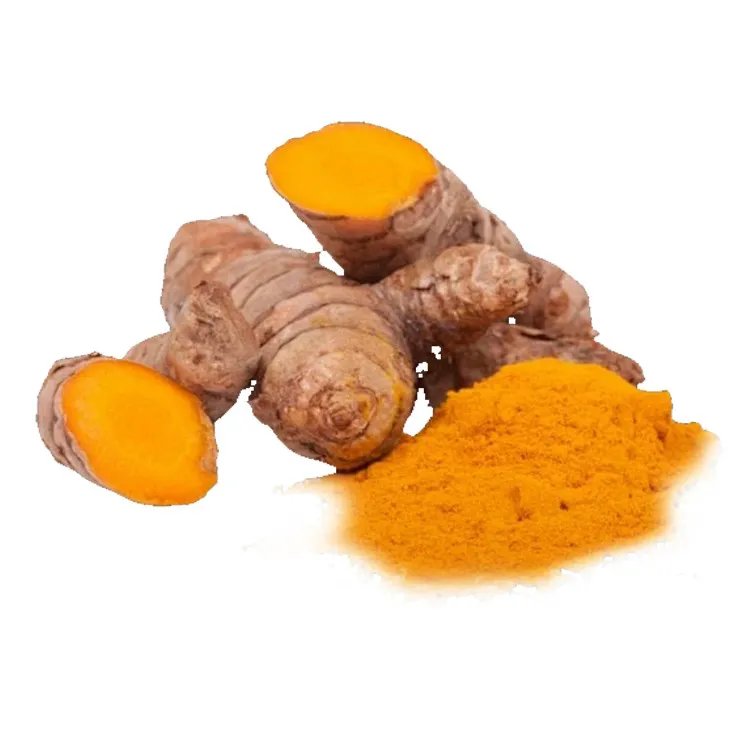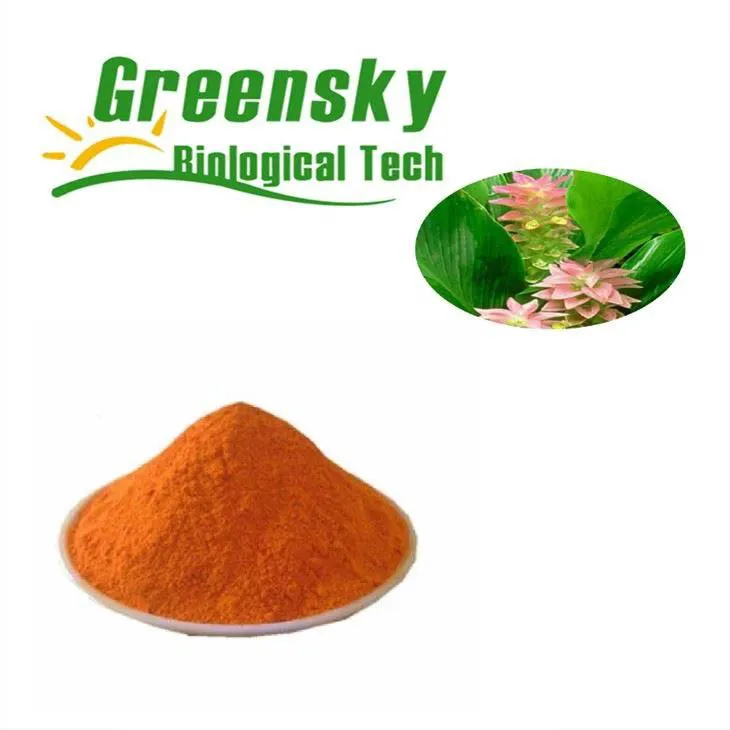- 0086-571-85302990
- sales@greenskybio.com
Turmeric vs. Curcumin: Understanding the Differences and Benefits
2025-09-14

Turmeric, the golden-yellow spice commonly used in South Asian cuisine, and Curcumin, its primary active compound, are celebrated for their health benefits. However, their roles and applications can vary significantly. Here’s a comprehensive look at the differences between turmeric and Curcumin, their health benefits, and how best to incorporate them into your routine.
Turmeric: The Whole Spice
Description: Turmeric is a root that's often dried and ground into a spice. It contains over 200 natural compounds, including Curcuminoids, polyphenols, and antioxidants.
Nutritional Profile: Provides small amounts of fiber, minerals, and various plant-based nutrients.
Forms: Available as a spice in grocery stores and markets, both in powdered form and as fresh root.

Curcumin: The Active Compound
Description: Curcumin is the main bioactive compound in turmeric, known for its anti-inflammatory and antioxidant properties.
Concentration: Makes up only 2% to 9% of turmeric by weight but is the most studied component due to its potent health effects.
Form: Often isolated and concentrated into supplements for targeted benefits such as reducing inflammation and supporting joint and heart health.

Health Benefits of Turmeric
1. Anti-Inflammatory and Antioxidant Properties: Fights inflammation and neutralizes harmful free radicals, potentially reducing risks of chronic diseases such as cancer and heart disease.
2. Digestive Support: Stimulates bile production, aiding fat digestion and relieving digestive discomforts like gas and bloating.
3. Skin Health: Reduces redness and irritation when applied topically or consumed regularly, helping with conditions like acne and eczema.
4. Cancer-Fighting Effects: Lab studies suggest it may slow the growth of certain cancer cells, although more human research is needed for confirmation.

Health Benefits of Curcumin
1. Joint Health: Alleviates joint pain and swelling, comparable to NSAIDs, particularly for osteoarthritis and rheumatoid arthritis.
2. Heart Health: Supports heart function and reduces risks of cardiovascular issues through its anti-inflammatory and cholesterol-lowering effects.
3. Mood and Memory: Increases BDNF levels, improving memory and mood and potentially reducing symptoms of depression and anxiety.
4. Blood Sugar Control: Helps regulate blood sugar and improve insulin response, beneficial for those with type 2 diabetes.

Bioavailability and Absorption
Turmeric: Contains natural oils that slightly enhance curcumin absorption. Combining with fats or black pepper (piperine) can improve efficacy.
Curcumin: Poorly absorbed on its own. Supplements often include piperine or are formulated with fat-based carriers to enhance bioavailability.

Usage Suggestions
Turmeric: Ideal for cooking, turmeric adds flavor and color to dishes like curries and soups. A daily intake of up to 8,000 mg is generally safe.
Curcumin: Available as capsules or powders, typically taken in doses ranging from 500 to 2,000 mg daily, with food for better absorption.
Safety and Side Effects
While generally safe, turmeric and curcumin can cause digestive issues or interact with medications such as blood thinners and diabetes drugs. Pregnant or breastfeeding individuals should consult with a healthcare provider before use, particularly with supplements.
Making a Choice
Choose turmeric for general health support and culinary use, benefiting from a whole-food approach. Opt for curcumin supplements if you seek targeted relief for specific health issues like joint pain or inflammation. Always consult with a healthcare professional before beginning any supplement regimen.
- ▶ Hesperidin
- ▶ citrus bioflavonoids
- ▶ plant extract
- ▶ lycopene
- ▶ Diosmin
- ▶ Grape seed extract
- ▶ Sea buckthorn Juice Powder
- ▶ Beetroot powder
- ▶ Hops Extract
- ▶ Artichoke Extract
- ▶ Reishi mushroom extract
- ▶ Astaxanthin
- ▶ Green Tea Extract
- ▶ Curcumin Extract
- ▶ Horse Chestnut Extract
- ▶ Other Problems
- ▶ Boswellia Serrata Extract
- ▶ Resveratrol Extract
- ▶ Marigold Extract
- ▶ Grape Leaf Extract
- ▶ blog3
- ▶ Aminolevulinic acid
- ▶ Cranberry Extract
- ▶ Red Yeast Rice
- ▶ Red Wine Extract
-
White Peony Extract
2025-09-14
-
Green Tea Extract
2025-09-14
-
Quercetin
2025-09-14
-
Kupilu Extract
2025-09-14
-
Artichoke Extract
2025-09-14
-
Echinacea Extract
2025-09-14
-
Grapefruit Seed Extract Powder
2025-09-14
-
Hedyotis Diffusa Extract
2025-09-14
-
Phellodendron Extract
2025-09-14
-
Resveratrol extract
2025-09-14





















